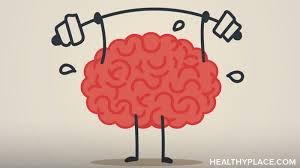
The mentally well boss & employees…
An organization is a direct reflection of the leader and those in leadership roles. It’s not unusual for organizations to attempt to resolve their employee engagement issues by hiring a trainer and/or consultant. The lack of willingness or interest to explore how the leadership is impacting the engagement of the workforce will result in unnecessary money, time and effort that will likely result in no change. The workforce will stay disengaged and the organization won’t grow or evolve.
Early in my career as an Employee Assistance Coordinator, I quickly learned how few employees utilized the free services made available through their employer. Often the same employees complain they cannot afford mental health support and that their insurance is too expensive.
However, these are the same people that drive through Starbucks and buy a $5 latte on the way to work in the morning! What is it about the reluctance to engage with a mental health professional? The stigmas continue to be attached to this essential profession. Employers have known this for many years which is why they invest in a programs to support their employees. They experience the issues employees bring into the workplace. Employers want to keep highly skilled employees therefore they are willing to invest in their mental wellbeing.
How can business owners and employers support their employees mental wellness if they themselves are are opposed to reaching out for help? Presenting with transparency and vulnerability are key aspects. As leader’s embrace services they can share their own experiences. There are circumstances which require mandatory referrals for services when Fitness for Duty issues arise, however those are rare. Most employees reaching out for help do so to learn stress management skills. If employees are unwilling to secure professional support, providing confidential and free resources can come in very useful.
Recently I was having lunch with a friend/colleague who had recently experienced the loss of a significant family member. They leaned over to tell me and in a whisper said “I am seeing a counselor” as if there was something to be ashamed of. I was thrilled they were seeing someone and told them so. It’s truly unfortunate that people continue to live in a place of embarrassment and shame about working with a mental health professional. We hire so many professionals in our lives, mental health professionals should be no different.
Being a mental health professional myself, I have always been encouraged and in some respects, expected to secure my own mental health professional. I am eternally grateful for the mental health therapists and coaches I have hired and learned from through the years!
Where can you find FREE mental wellness resources?

Most mental health professionals have access the free resources to support their clients. Let’s start with how to locate a professional. If you are planning to use insurance, check first with the list of providers available through your insurance carrier. NEXT, you will want to do a little homework. Is this person a good fit to work with you and/or your loved ones?
Use a website like Healthgrades.com. You can learn alot about your provider including their academic background, their professional training and licenses, their specialities, the insurance they accept, their delivery; in person and/or virtual, their hours of operation, and any complaints or reviews.
PsychologyToday.com is a very valuable tool for locating a provider. Similar to Healthgrades, they provide a comprehensive listing of providers. This site differs as the providers are paid subscribers. The include private pay and insurance providers. They offer providers opportunities to create a video which can certainly offer additional insight regarding their personality, their energy level, the speaking style.
Resources through Oprah.com
I want to give credit to Oprah.com for the following resources to support various issues:
Struggling with anxiety.
The Anxiety and Depression Association of America has created free, anonymous online peer-to-peer communities (adaa.org) for people suffering from mental health disorders to be able to find support, share their stories and connect with others who have had similar experiences. Prefer to meet in person? Find a state-by-state list of support groups on the AADA’s website (adaa.org/supportgroups).
Struggling with depression or bipolar disorder.
Locate an in-person or online group at the Depression and Bipolar Support Alliance site (dbsalliance.org).
Struggling with postpartum depression.
The Postpartum Progress site (postpartumprogress.com) lists support groups in nearly every state as well as in Canada and maintains an online forum.
Struggling with schizophrenia.
The Schizophrenia & Psychosis Action Alliance facilitates groups nationwide; find one on its site (sczaction.org). You can also dial into its phone groups (855-640-8271) at 7 P.M. ET Sunday, Thursday and Friday with the pass code 88286491#.
Plagued by obsessive-compulsive thoughts and behaviors.
More than 200 groups are listed with the International OCD Foundation (iocdf.org), which aids those affected by the disorder and their families.
The adult child of an alcoholic.
The Adult Children of Alcoholics World Service Organization maintains numerous support groups and hosts call-in and online sessions (meetings.adultchildren.org).
Grieving someone who died by suicide.
Join one of the many groups for survivors listed on the American Foundation for Suicide Prevention website (afsp.org).
A survivor of rape, sexual assault or incest.
After Silence (aftersilence.org) is a message board and chat room for victims of sexual violence.
Battling anorexia, bulimia, binge eating or food addiction.
Eating Disorder Hope catalogs online support groups (eatingdisorderhope.com/recovery/support-groups/online); it also offers help and advice for those close to someone struggling to overcome an eating disorder.
Battling sex addiction.
Sex Addicts Anonymous (saa-recovery.org), similar to Alcoholics Anonymous, offers a widespread network of in-person, online, and phone meetings.
Self-harming.
DailyStrength hosts a web forum where people dealing with self-injury can find encouragement, understanding, and a new way to cope (dailystrength.org/group/self-injury).
A veteran who is injured or has PTSD.
The VA Combat Call Center—877-WAR-VETS (877-927-8387)—is staffed 24/7 by fellow combat veterans or spouses of disabled veterans who can offer immediate help; the Vet Center program site (vetcenter.va.gov) can direct visitors to both group and private counseling sessions in their area.
In Conclusion
It’s important to establish policy and procedure in the workplace. It’s also important to equip your employees with tools and resources to support them. This article is a very small snapshot of the resources available to support anyone who is struggling. If you have an EAP at work, encourage them to provide resources, lunch & learns, and online tools to support employees. If you are struggling to find solutions, call me for a free 15 minute consultation at 440-212-4987.
